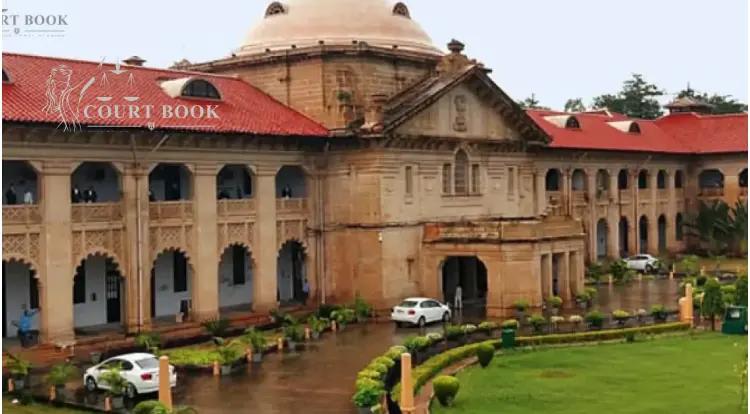The Allahabad High Court has ruled that the Additional Commissioner of Police (ACP) is not subordinate to the Additional District Magistrate (ADM) and thus cannot be delegated powers to take possession of assets under Section 14(1-A) of the Securitisation and Reconstruction of Financial Assets and Enforcement of Security Interest (SARFAESI) Act, 2002.
Justice Pankaj Bhatia, while interpreting Sections 14(1) and 14(1-A), stated:
"It is clear that Section 14 empowers the District Magistrate or the Chief Metropolitan Magistrate to take possession of the concerned property. Section 14(1-A) further empowers them to authorize any officer subordinate to them to take possession and forward the assets to the secured creditor. Hence, only a functionally subordinate officer can be entrusted with such responsibilities."
The Court further emphasized that a writ petition is maintainable in cases where mandatory provisions, such as Section 14(1-A) of the SARFAESI Act, have not been followed, resulting in the violation of constitutional property rights under Article 300-A of the Indian Constitution.
Case Background
In this case, the first petitioner had availed a loan in 2015, with petitioners 2-4 serving as personal guarantors. In 2020, the lending bank classified the loan as a Non-Performing Asset (NPA) and issued notices under Section 13(2) of the SARFAESI Act. Further notices under Section 13(4) were also served, and an application under Section 14 was filed before the Additional District Magistrate (ADM) of Gautam Budh Nagar for possession of the mortgaged property.
The ADM directed the Assets Reconstruction Company (ARC) to take possession with police assistance, instructing that reasonable notice be given to the occupiers before possession was taken to allow them to relocate their belongings. However, in the securitization application filed by the petitioners, an interim order was passed directing the ADM/CMM to issue a notice at least 15 days before taking possession.
Read Also:- Jammu & Kashmir High Court Clarifies MCI Guidelines on Non-Medical Faculty Appointments
Despite this, while the case was pending before the Debt Recovery Tribunal (DRT), the ARC issued possession notices without proper official involvement. The petitioners argued that no notice was issued as per the directive of the DRT, and that forceful possession was taken without government oversight, thereby violating their property rights under Article 300-A.
The ARC contended that, as a private entity, the writ petition was not maintainable against it. Additionally, it argued that since the petitioners had already approached the DRT, they should be directed to exhaust their alternate remedy.
The Allahabad High Court relied on the precedent set in NKGSB Co-operative Bank Limited vs. Subir Chakravarty & Others, where the Supreme Court held that an Advocate Commissioner appointed under Section 14(1-A) must be an officer of the Court and functionally subordinate to the District Magistrate (DM) or Chief Metropolitan Magistrate (CMM).
Applying this principle, Justice Bhatia addressed the key question: whether the Additional Commissioner of Police (ACP) qualifies as a subordinate officer to the DM, and whether the DM could authorize the ACP to further delegate possession-related powers. The Court concluded that:
"The Additional Commissioner of Police cannot be considered functionally subordinate to the Additional District Magistrate, even under the test of functional subordination laid down by the Supreme Court."
The Court highlighted that possession of the immovable property was taken by an officer who was delegated authority by the ACP. However, since neither the ACP nor his delegated officer was functionally subordinate to the ADM, the action violated the statutory provisions of the SARFAESI Act. Furthermore, movable assets, which were not hypothecated, were also taken from the petitioners, exacerbating the issue.
Read Also:- Delhi High Court Grants Permanent Injunction Against Shop Owners for Infringing Louis Vuitton Trademarks
The Court ruled that since the government had played a role in the possession process, the writ petition was maintainable. It rejected the ARC’s argument regarding alternate remedy, affirming that the legal procedure under the SARFAESI Act must be followed rigorously.
"The procedure of law must be scrupulously followed," the Court asserted while allowing the writ petition.
Case Title: M/S Durga Travels Thru. Proprietor Pankaj Sharma And 3 Others v. Debts Recovery Tribunal, Lko. And 2 Others [MATTERS UNDER ARTICLE 227 No. - 1133 of 2025]















